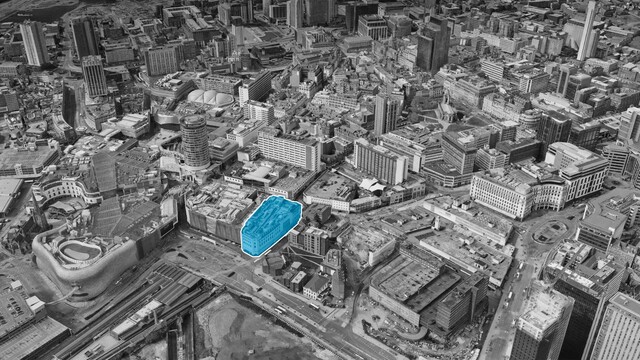Capital & Regional’s Hutchings: ‘Cowboys don’t cry’
When Lawrence Hutchings left Blackstone to join Capital & Regional as chief executive in 2017, he had stepped in to lead a shopping centre owner with a portfolio value of £886.6m across seven wholly-owned properties.
Since then, the value of the portfolio – now consisting of five assets – has dropped by nearly two-thirds to £322.75m, in the year ending December 2022.
“As the CEO, I have to be honest with you, it has been a really, really tough five years,” says Hutchings. “It has been a tough ride for shareholders. But we don’t feel sorry for ourselves. We have a great team.”
When Lawrence Hutchings left Blackstone to join Capital & Regional as chief executive in 2017, he had stepped in to lead a shopping centre owner with a portfolio value of £886.6m across seven wholly-owned properties.
Since then, the value of the portfolio – now consisting of five assets – has dropped by nearly two-thirds to £322.75m, in the year ending December 2022.
“As the CEO, I have to be honest with you, it has been a really, really tough five years,” says Hutchings. “It has been a tough ride for shareholders. But we don’t feel sorry for ourselves. We have a great team.”
Hutchings recounts how, when discussing share price performance with shareholders last year, one told him that “cowboys don’t cry”.
“The reality is, we have done as well as the better players in the market,” says Hutchings. The business is back in the black after making £12.1m IFRS profit, up from a loss of £26.4m in the previous year. Net rental income has risen by 16.9% year-on-year to £23.5m.
“We have still lost money and shareholder value, but we are well positioned to weather the storm, as our results set out, and starting to look forward to a brighter outlook,” he says.
Debenhams was C&R’s biggest tenant in December 2017; before that, it was BHS. The former went through two rounds of restructuring ahead of its collapse in 2020.
“It has been a period of deep, deep structural change in the retail sector,” says Hutchings. “No one foresaw what was to come.” He adds that “everybody” was caught out, even the institutions and private equity houses.
During the past 18 months, the group has shrunk its net debt to £130.9m through disposals and consensual sale processes. Steps taken have included the impending sale of the Mall in Luton, which Mike Ashley’s Frasers Group is understood to be in talks to acquire from lender Wells Fargo. The business’s net loan-to-value ratio has reduced to 41%, from 49% at the end of 2021.
While the focus in recent years has been on the company’s operations and repositioning existing assets, Hutchings says the business would not rule out any “super compelling” opportunities.
“We look at everything,” says Hutchings. “If something came along and ticked all the boxes, we would be thinking long and hard about how we could do that. It wouldn’t be straightforward, with the share price trading at the discount that it is, and the debt markets being challenging, but who knows?”
Going forward, residential and mixed use are clear areas of focus for the business. And even though retail has bottomed out, Hutchings is upbeat that capital values in the sector will rise again. He highlights that consumers are making a meaningful return to stores.
“I would like to think there is growth in capital values from here,” he says. “If a cap rate is a proxy for underlying income, we are in Walthamstow with Boots, Superdrug, Lidl and Asda. That income feels a lot more robust today than it did two or three years ago. Those businesses rely on physical presences, and there is demand from those types of retailers.
“So I would like to think there will be movement in cap rates over time. We believe we can increase our occupancy, convert some temporary lets into permanent leases and deliver capex repositioning programmes. Those will grow income, and we can grow value from growing income.
“If we get some yield compression at some point in the future, that will help, but we don’t need that. We have enough organic growth from the existing portfolio, as we take advantage of the return to stores.”
He adds: “We are proud of how robust the business has been, despite all the challenges. We are now very well positioned as the physical retail channel starts to recover. We feel cautiously optimistic about the near-term prospects for the company.”
To send feedback, e-mail pui-guan.man@eg.co.uk or tweet @PuiGuanM or @EGPropertyNews











